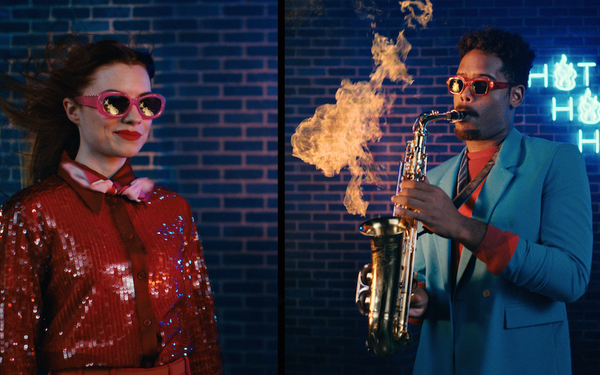
On the heels of Rugiet’s humorous campaign for its erectile disfunction products come three
funny new spots in the largest TV campaign ever from seven-year-old BlueChew, one of telehealth’s first ED marketers.
Unlike Rugiet’s ad, where a football coach bludgeons his team
with double entendres, making clear the connection between their on-the-field troubles and ED, BlueChew’s commercials never get close to mentioning the medical problem by name.
ED ads
usually “come at us like they’re trying to solve the problem or explain how confidence is supposed to work,” BlueChew Brand Creative Director Riley Shine tells Marketing
Daily. “The goal was to shift the conversation from really clinical to something that feels a little more human, so we approached this uncomfortable topic” by not “hitting you
over the head and being a little too obvious and almost too overt.”
advertisement
advertisement
The result is three analogies, one involving talking pillows.
Ryan Petersen, BlueChew’s CMO, says his
favorite is “Group Chat,” in which “word gets around” from a group of cloaked (medieval-looking?) women engaged in a candlelit discussion around a large table. “Last
night was epic,” reports Ingrid to the group. “He took BlueChew,” she adds, before issuing an “official ruling” of “Fire” to the group.
“It is a
different approach than anyone has taken historically,” says Petersen. Turning to the spot’s production value, he boasts that “it can stand up next to the best of the best when
looking at big brands.”
Another ad plays off BlueChew’s trademarked motto, “Have better sex” by showing instead “Better Sax.” After visualizing “group
sax,” “solo sax,” “phone sax” and other sax, the spot states, “There’s good sax, great sax, and there’s better sax. With BlueChew.”
“We can’t come out and say ‘have better sex’ on TV in that direct way,” notes Petersen. “Riley and his team came up with this very creative approach of leaning
into the ‘have better sex’ mantra.”
The ads, which Shine say “play into something” that’s “a little bit” cheeky, ridiculous and risky, are
“ultimately wrapped up in TV-safe packaging so we can show it to people in the middle of the day and bring them a little delight and joy.”
The spots will run on broadcast, cable,
streaming and online, with the goal of being approachable to “any men who are struggling with erectile dysfunction” across all ages, says Petersen. “Our goal is to get
attention, and ultimately they’ll go search BlueChew. It’s very much a brand awareness play,” to “touch on the idea of what we’re selling, but not necessarily hit you
between the eyes with it.”
The length of the campaign will depend on how it performs in two areas, Petersen says.
First, “How do people respond directly after seeing the
ads, what is the uplift both in search volume and new patients?"
Secondly, “What does the overall brand awareness look like? Are we reaching a broader audience?”